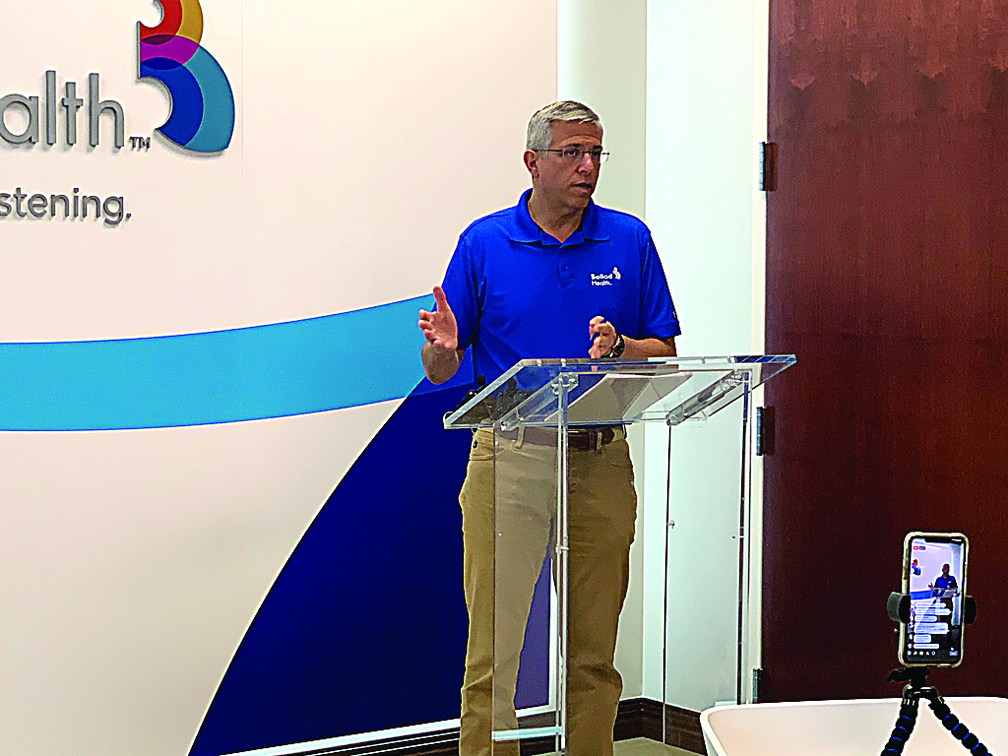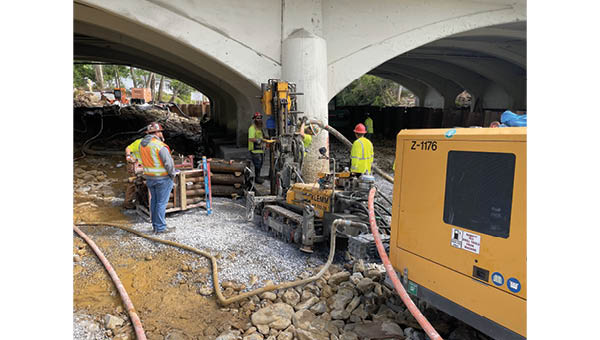Ballad Health furloughs 1,300 employees and makes pay cuts amidst COVID-19; frontline staff guaranteed hours
Published 2:14 pm Wednesday, April 8, 2020

- Contributed Photo Alan Levine announced pay cuts and furloughs in response to COVID-19 on Wednesday.
Pay cuts and employee furloughs in response to COVID-19 were announced by Ballad Health President and CEO Alan Levine during a media briefing on Wednesday.
According to Levine, 1,100 of these employees are from Tennessee and 200 to 250 are from Virginia. These employees reportedly have already been unable to work due to the virus with lower patient volumes. Levine says this is intended to benefit these workers.
“There are a lot, 70 percent of the team members who make below 45,500 dollars in Tennessee, more than likely were already seeing reduced hours before this, but were not getting paid for it, or were using their paid time off” he said. “By doing this for them, it is very likely they’re going to benefit more. And so, when the word furlough is used, I don’t know a better word for it, it is a furlough, but it’s really shifting them from an unpaid leave to paid leave, being paid by Ballad Health and the Federal Government.”
The furlough is set to begin Friday. While Levine does not know when it will end, he said it will be revisited in 60 days. These employees will have access to state and federal unemployment benefits, and also keep their full health and pharmacy benefits from the company.
Should a surge of the virus happen in the area, Ballad is prepared to ask these employees back.
“There is a way we’re designing this so that if we’re calling people back, if we need team members, if there is a surge, and there is a specific type of skill we need, that we don’t need right now, we’re in a position to recall them and have them come back immediately,” Levine said. “That’s the beauty of the benefit congress provided that we’re grateful for.”
Levine praised the CARES Act as allowing employees to come back if a surge happens, for a variety of needs.
In addition to furloughs, there will be pay cuts to executives, certain physicians and advanced clinicians, ranging from 10 to 20 percent. The Senior Vice President and above will have a 20 percent reduction of pay. Levine has already decided to forego his pay. Frontline staffing and physician practices or urgent cares, not furloughed, will not have cuts.
Ballad Health is anticipating losing 155 million dollars in cash flow over the next 90 days as well.
Levine said during this time, people owing past medical bills will not face active collections. This is in effect for 90 days. Levine took to Twitter Tuesday evening to address this, explaining that those who cannot pay bills at this time due to the virus can delay payments during the set period. Those in collection will not face additional action during this time either, and are being urged to communicate with Ballad.
He also stated that RN’s, LPN’s, nursing assistants and respiratory therapists on the front line will be guaranteed their hours.
In response to healthcare providers leaving this area to assist in more affected regions, Levine urged individuals not to. He explained that if a surge happens here, these workers would face quarantine for two weeks before they could assist here if they leave. He also explained that if furloughed employees decide to not return if called back, this is a resignation. Those leaving to aid other regions are not considered resigned.
Speaking further on surge preparation, Levine stated that Ballad is prepared, should it happen, and that social distancing is working.
“I don’t agree with the premise that the models are wrong and it’s not as bad as we thought,” he said. “While I certainly understand why folks might say that, the reality is social distancing is working, and the steps that are being taken are slowing down the spread of the virus, which is exactly what we were hoping for. But yes, right now we believe we have the capacity. We have 200 COVID specific beds available. As of [Tuesday], we have 13 patients in house, with two on ventilators. And so we are certainly prepared to ramp up, and going back, this is why we are guaranteeing full hours for LPN’s, RN’s, CNA’s and respiratory therapists, to make sure frontline staff are absolutely available, should we get a surge.”





